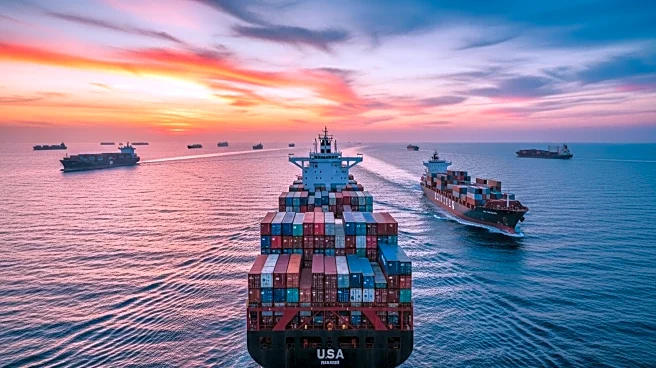What is the story about?
What's Happening?
China's exports to the United States fell by 27% in September compared to the previous year, despite a 6-month high in global export growth. Customs figures revealed that China's worldwide exports increased by 8.3% year-on-year, surpassing economists' expectations. Imports also grew by 7.4%, indicating a stronger performance than the previous month. However, the ongoing trade tensions between China and the U.S., including new tariffs and retaliatory measures, continue to impact exports to the U.S. President Trump's policies have pressured manufacturers to relocate to America, while China has expanded its markets in Southeast Asia, Latin America, and Africa.
Why It's Important?
The decline in exports to the U.S. highlights the ongoing trade tensions between the two largest economies, which could have significant implications for global trade dynamics. The shift in China's export strategy towards other regions may alter international trade patterns and affect U.S. businesses reliant on Chinese imports. The situation underscores the fragility of the current trade truce and the potential for further economic disruptions if tensions escalate. Stakeholders in both countries, including manufacturers and consumers, may face increased costs and supply chain uncertainties.
What's Next?
The trade friction could jeopardize a planned meeting between President Trump and Chinese President Xi Jinping, potentially hindering progress towards a comprehensive trade agreement. The introduction of new tariffs and export controls may further strain relations and impact global supply chains. Businesses and policymakers will need to monitor developments closely and prepare for potential shifts in trade policies and economic strategies.
Beyond the Headlines
The broader implications of the trade tensions include potential long-term shifts in global supply chains and economic alliances. The situation raises ethical and strategic questions about the balance between national interests and global cooperation. The impact on industries reliant on international trade could lead to increased innovation and adaptation as businesses seek to mitigate risks.














